Pavan Prakash
"Doing my part"
POINTS TOTAL
- 0 TODAY
- 0 THIS WEEK
- 1,768 TOTAL
participant impact
-
UP TO79milesnot traveled by car
-
UP TO79milestraveled by foot
-
UP TO279pounds of CO2have been saved
-
UP TO30poundswaste composted
-
UP TO8.0hoursvolunteered
-
UP TO2.0community eventshosted or attended
-
UP TO4.0advocacy actionscompleted
-
UP TO3.0public officials or leaderscontacted
-
UP TO10treesplanted
-
UP TO322minutesspent learning
Pavan's actions
Freshwater + Oceans
Raise Awareness for the Conservation of Freshwater and Oceans
I will spend 10 minutes learning more about the importance of freshwater + ocean conservation, and how I can reduce my water use. I will share what I learn with people in person, on social media, and on the feed.
Freshwater + Oceans
Smart Seafood Choices
We need to support healthy seafood populations. I will spend 15 minutes learning about sustainable seafood choices, commit to making better seafood choices for a healthier ocean, and share what I learned on the feed.
Action Track: Community
Share My "Why"
I will record a video to share why I am taking action this Earth Month, a sustainable swap I've made, and/or a local conservation effort in my area.
Land + Forests
Compost Food Waste
Food in the landfill is one of the main sources of greenhouse gasses. I will avoid sending up to .69 lbs (.31 kg) of food waste to the landfill per day by composting my food.
Biodiversity + Wildlife
Save the Bees
Bees are vital to ecosystems. To help save the bees, I will learn which local flowers provide nectar and plant them in my backyard or in a pot on my balcony.
Biodiversity + Wildlife
Plastic in Clothing and Water
Synthetic clothing can contain plastic and shed harmful microplastics into our water. I will use a microplastics catcher in my laundry, or install a microplastics filter for my washing machine.
Biodiversity + Wildlife
Pick Up the Phone
I will gather a group of friends, family, neighbors or colleagues to make 1 phone calls to public officials or companies to advocate for planet-friendly policies.
Biodiversity + Wildlife
Invest in Nature
A healthy world needs both our daily actions and support from larger systems. I will spend 30 minutes learning about how I can use my investments and savings to advance environmental sustainability.
Biodiversity + Wildlife
Seek Alternative Gifts and Souvenirs
When traveling, I will seek souvenirs that support local communities and do not cause harm to the environment or wildlife.
Action Track: Community
Sustainability Lunch and Learn
Learning in a social setting can inspire connection and change. I will work with a friend or colleague to plan and host a lunch and learn at work, school, in my neighborhood or other location to learn more about an environmental topic important to me. After the lunch and learn, I will share more about it on the feed.
Freshwater + Oceans
Low Water Gardening
Grass lawns are water-intensive and on average require about 30 percent of a household’s water consumption. Native plants are water-efficient and help maintain the balance and diversity of local ecosystems. I will plant native species with water-efficient plants to conserve water and improve the habitat, then post a photo on the feed to share.
Freshwater + Oceans
Reduce Pollutants in Cleaning
Understanding cleaning product ingredients and their effect on water and biodiversity is helpful to our consumer choices. I will spend 15 minutes learning about how cleaning products affect our water and try making my own cleaning products to reduce pollutants.
Action Track: Community
Join a Cleanup Effort
I will organize or participate in a trash pickup at a local river, beach, or natural body of water.
Land + Forests
Choose Eco-Friendly Wood and Paper
Trees provide food and habitat for local wildlife species, shade our streets and homes, and help keep our air and water clean by capturing pollutants. Buying products that help protect forests makes a difference. I will only purchase wood, furniture, and paper products from ecologically certified sources such as Forest Stewardship Council.
Land + Forests
Zero Waste Day
The impacts of our waste are far reaching. I will create zero waste for an entire day and share my reflections and learnings on the feed.
Land + Forests
Plant Trees
Trees capture carbon and produce oxygen that is essential to life on earth. I will support this important piece of nature by organizing or joining a community group to plant 10 native trees in my community, public parks, office location, campus or backyard.
Climate + Air
Stay on the Ground
Carbon emissions from air travel is harmful to planetary and human health. Instead of traveling by plane, I will find an alternative way to accomplish the goals of an upcoming trip (i.e. telepresence, vacation locally).
Climate + Air
Choose Renewable Energy
Renewable energy options are becoming more widespread and accessible. Not only are they good for the planet, they can help save money as well. I will sign up for my utility company's clean/renewable energy option. If my utility does not offer one, I will contact them to advocate for this option in the future.
Climate + Air
Declutter My Home Without the Landfill
Each day, I will learn about responsible ways to dispose of items and de-clutter, clean, donate, repurpose or recycle unneeded items in my home to make sure that what I get rid of doesn't go into the landfill.
Climate + Air
Use Muscle Power
I will cut my car trip mileage by only taking necessary trips, and I will only use muscle-powered transportation for all other trips.
Biodiversity + Wildlife
Leave No Trace
I will respect and protect biotic communities by practicing the seven principles of Leave No Trace whenever I am outside.
Biodiversity + Wildlife
Volunteer in my Community
I will volunteer 8 hours in my community.
Land + Forests
Advocate for Forest Protection
Using my voice can help create a more sustainable and just world. I will contact 2 local, regional, or national decision makers to advocate for public policy that protects forests and improves their ability to sequester carbon and nourish biodiversity.
Land + Forests
Carry My Trash
I will carry all of my unrecyclable, non-compostable trash with me this month, to raise my awareness of how much I send to the landfill. I will post on the feed my reflections, conversations, and actions I will take moving forward.
Land + Forests
Borrow Before I Buy
Why buy something I will only use once or a few times if someone nearby has it for me to borrow, and why not share something I have that someone may only need a few times a year? To reduce my consumption and waste, I will create or support the sharing economy with friends, family, colleagues or neighbors.
Participant Feed
Reflection, encouragement, and relationship building are all important aspects of getting a new habit to stick.
Share thoughts, encourage others, and reinforce positive new habits on the Feed.
To get started, share “your why.” Why did you join the challenge and choose the actions you did?
-
 Pavan Prakash 4/29/2024 8:52 PMCelebrating our Ecosphere: The Conclusion of Earth Month Eco ChallengeAs the sun sets on the last day of our Earth Month Eco Challenge, let's take a moment to commemorate our collective contributions towards the betterment of our cherished ecosphere.Throughout the month, we've planted seeds of sustainability, reducing our carbon footprints, implementing recycling habits, supporting local eco-conscious businesses, and stepping out to clean our local communities. Day by day, our small acts of environmental stewardship have collectively made a big difference.As we conclude this challenge, it is essential to understand that our commitment to Mother Earth isn’t confined to a span of one month. True change extends beyond the boundaries of Earth Month. It requires a sustained effort, practiced each day, every month, each year.The Earth Month Eco Challenge has instilled a sense of responsibility and awareness, an understanding that each one of us plays a significant role in maintaining the ecological balance of our planet. We are not just inhabitants but also guardians of this world.As we move beyond Earth Month, let’s pledge to continue the practices we've adopted during the Eco Challenge in our everyday lives. Let's strive to make every month an Earth Month, every day an Earth Day, and every moment an Earth Moment.Every choice we make, every product we buy, and every practice we implement contributes towards the future of the Earth - the only home we have. Stay pro-earth, remain committed, and keep sowing the seeds of sustainability for a healthier and greener future.Happy for being a part of this year's Earth Month Eco Challenge. While the challenge may end, let's ensure our journey towards a greener planet continues!
Pavan Prakash 4/29/2024 8:52 PMCelebrating our Ecosphere: The Conclusion of Earth Month Eco ChallengeAs the sun sets on the last day of our Earth Month Eco Challenge, let's take a moment to commemorate our collective contributions towards the betterment of our cherished ecosphere.Throughout the month, we've planted seeds of sustainability, reducing our carbon footprints, implementing recycling habits, supporting local eco-conscious businesses, and stepping out to clean our local communities. Day by day, our small acts of environmental stewardship have collectively made a big difference.As we conclude this challenge, it is essential to understand that our commitment to Mother Earth isn’t confined to a span of one month. True change extends beyond the boundaries of Earth Month. It requires a sustained effort, practiced each day, every month, each year.The Earth Month Eco Challenge has instilled a sense of responsibility and awareness, an understanding that each one of us plays a significant role in maintaining the ecological balance of our planet. We are not just inhabitants but also guardians of this world.As we move beyond Earth Month, let’s pledge to continue the practices we've adopted during the Eco Challenge in our everyday lives. Let's strive to make every month an Earth Month, every day an Earth Day, and every moment an Earth Moment.Every choice we make, every product we buy, and every practice we implement contributes towards the future of the Earth - the only home we have. Stay pro-earth, remain committed, and keep sowing the seeds of sustainability for a healthier and greener future.Happy for being a part of this year's Earth Month Eco Challenge. While the challenge may end, let's ensure our journey towards a greener planet continues!
#EarthMonth #EarthDayEveryday #EcoChallenge #Sustainability #GreenFuture-
Thilak Chinnaiyan 4/30/2024 2:34 AMImpressive -
Vijayalakshmi Ganesan 4/30/2024 1:42 AMRightly said!
-
-
 Pavan Prakash 4/28/2024 11:21 PMCycling was always a part of most our lives from very young age. Cycling has a lot of advantages from the environmental perspective.
Pavan Prakash 4/28/2024 11:21 PMCycling was always a part of most our lives from very young age. Cycling has a lot of advantages from the environmental perspective.- Reduced Emissions: Cars, trucks, and buses emit high levels of carbon dioxide and other greenhouse gases, which contributes to climate change. Bicycles, however, are zero-emission vehicles that do not burn fossil fuels and therefore do not release any harmful gases.
- Less Energy Consumption: Bikes require significantly less energy to manufacture than a car and require no energy expenditure to run them, aside from your own physical exertion.
- Decreases Congestion: By choosing to bike rather than drive, you are reducing the number of vehicles on the road, which decreases traffic congestion and the pollutants that result from it.
- Minimal Spatial Impact: Bicycles require less space for parking and travel than cars, making the city environment cleaner and less crowded.
- Lower Noise Pollution: Bicycles are quiet and help reduce the noise pollution often associated with high traffic volumes in urban areas.
- Promotes Green Spaces: Less reliance on cars can mean less need for road expansion and more chance for the preservation of green spaces in urban areas.
- Sustainability: Unlike car batteries, bikes do not contain harmful materials and do not entail environmentally troublesome disposal issues.
- Reduction in Road Ruin: Lighter than cars and trucks, bicycles cause less damage to roads, reducing the need for road repair and associated environmental impacts.
- Improves Overall Environmental Health: Cycling helps to foster a greater connection between people and the environment, leading to more conscious choices about the natural world.
- Longer Life Span of Materials: Bicycles typically have longer lifespans than cars, and the materials used in their construction (principally steel, aluminum, and rubber) are more easily recycled.
Remember, every mile cycled is a mile not driven.
Sharing an image i took from one of my early morning cycling expeditions from Edward Elliots Beach Chennai, India.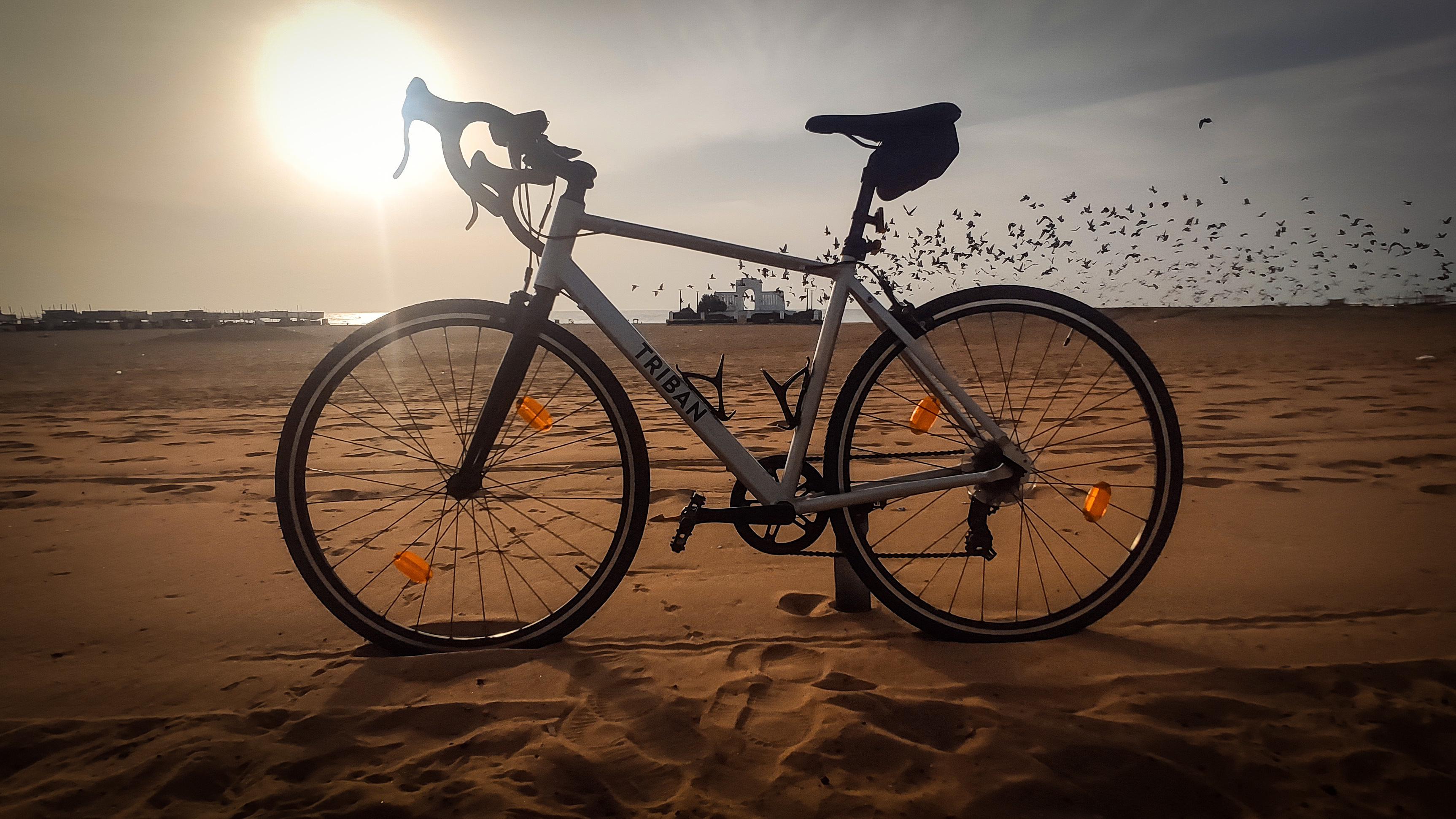
-
 Vasundara Abhishek 4/29/2024 3:42 AMBeautiful .
Vasundara Abhishek 4/29/2024 3:42 AMBeautiful .
-
 Pavan Prakash 4/28/2024 1:08 AMNature provides a free lunch, but only if we control our appetites.
Pavan Prakash 4/28/2024 1:08 AMNature provides a free lunch, but only if we control our appetites.
-William Ruckelshaus-
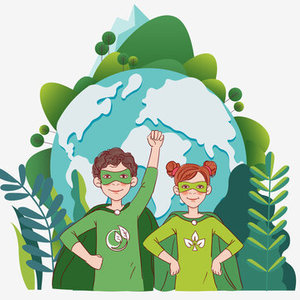 Hariprasad Manivannan 4/28/2024 5:12 AMNice . . .
Hariprasad Manivannan 4/28/2024 5:12 AMNice . . . -
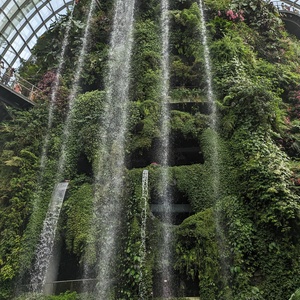 Sathya Harika Konduri 4/28/2024 1:32 AMNice
Sathya Harika Konduri 4/28/2024 1:32 AMNice -
 Julia Drews 4/28/2024 1:15 AMNice quote!
Julia Drews 4/28/2024 1:15 AMNice quote!
-
-
 Pavan Prakash 4/26/2024 11:30 PMFound this very small practice which all of us can do when opening a packet or sachet.
Pavan Prakash 4/26/2024 11:30 PMFound this very small practice which all of us can do when opening a packet or sachet.
Partially tearing and keeping the corner attached instead of tearing off and throwing away the corner of the packet. Usually, the corner which we tear off of the packet is barely disposed and will end up in the land and soil polluting it.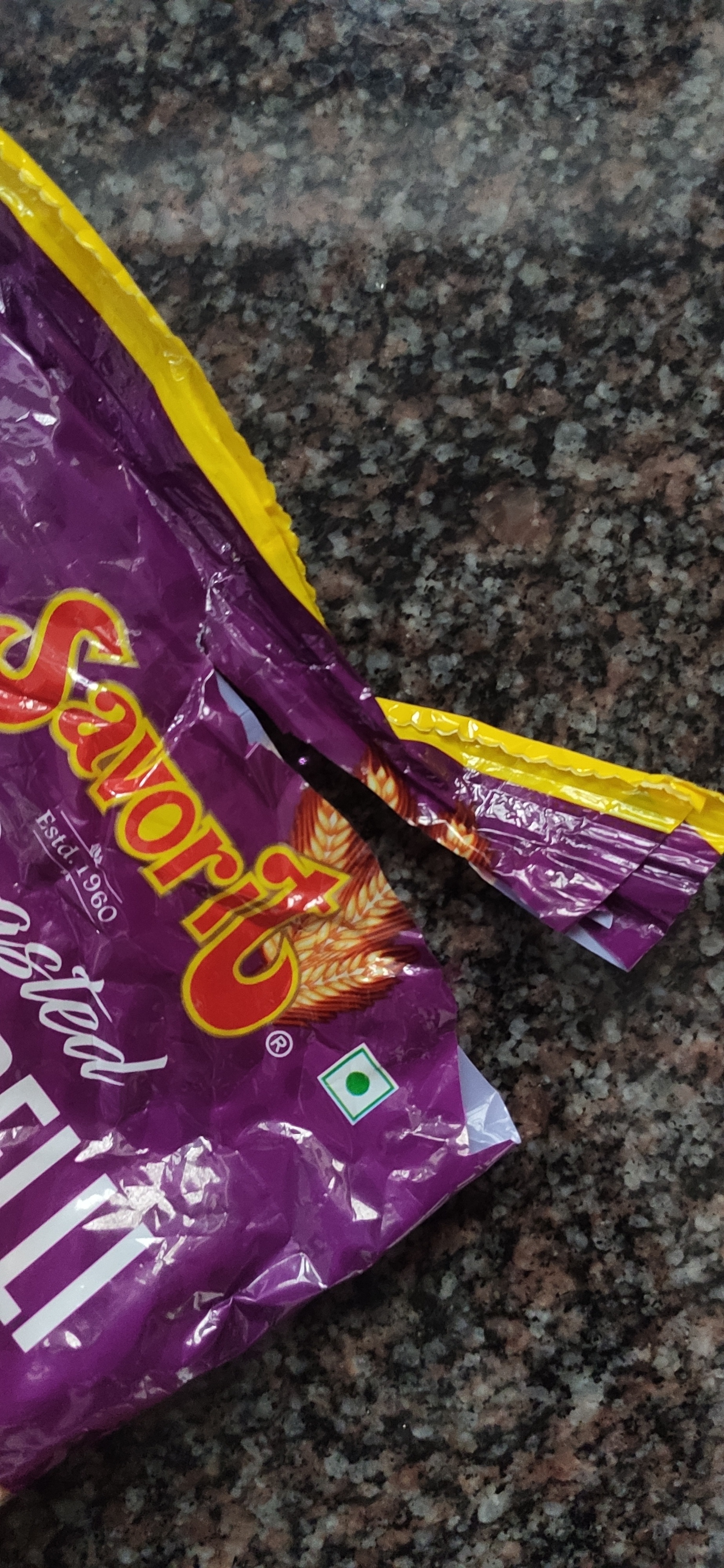
-
 Pavan Prakash 4/26/2024 7:57 AMWe humans have become so dependent on plastics for a range of uses, from packaging to products. Reducing our use of plastic bags is an easy place to start getting our addiction out of control.
Pavan Prakash 4/26/2024 7:57 AMWe humans have become so dependent on plastics for a range of uses, from packaging to products. Reducing our use of plastic bags is an easy place to start getting our addiction out of control.
– David Suzuki -
 Pavan Prakash 4/25/2024 6:02 AMSmall choices and daily actions can be very impactful in the long run to fight plastic pollution.
Pavan Prakash 4/25/2024 6:02 AMSmall choices and daily actions can be very impactful in the long run to fight plastic pollution.
Below are few small steps which we can take to prevent plastic pollution.
1. Say no to plastic bags.
2. Bottle Your Own Water.
3. Skip Plastic Straws.
4. Avoid Plastic Cutlery.-
 Hariprasad Manivannan 4/28/2024 5:11 AMGood Info . . .
Hariprasad Manivannan 4/28/2024 5:11 AMGood Info . . . -
 Kasinathan Sekar 4/25/2024 10:51 PMGood Info
Kasinathan Sekar 4/25/2024 10:51 PMGood Info
-
-
 Pavan Prakash 4/23/2024 9:52 PMPreserve and cherish the pale blue dot, the only home we've ever known.
Pavan Prakash 4/23/2024 9:52 PMPreserve and cherish the pale blue dot, the only home we've ever known.
- Carl Sagan-
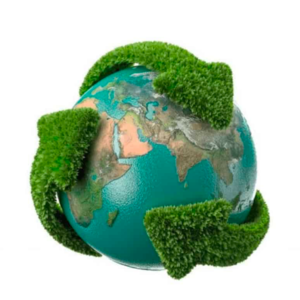 Akshay Vispute 4/23/2024 10:04 PMTrue
Akshay Vispute 4/23/2024 10:04 PMTrue
-
-
REFLECTION QUESTIONFreshwater + Oceans Low Water GardeningWhat are the most prominent water concerns in your area? Examples include drought, flooding, pollution, access, security, and privatization.
 Pavan Prakash 4/23/2024 1:14 AMThe most prominent water concerns are flooding which is mainly due to poor management of drainages and sewers as well as drought and polluted water due to negligence and improper waste management.
Pavan Prakash 4/23/2024 1:14 AMThe most prominent water concerns are flooding which is mainly due to poor management of drainages and sewers as well as drought and polluted water due to negligence and improper waste management. -
 Pavan Prakash 4/23/2024 1:11 AMPlastic pollution free world is not a choice, but a commitment to life- a commitment to the next generation.
Pavan Prakash 4/23/2024 1:11 AMPlastic pollution free world is not a choice, but a commitment to life- a commitment to the next generation.
- Sri Amit Ray -
 Pavan Prakash 4/21/2024 8:38 PMHappy Earthday Everyone!
Pavan Prakash 4/21/2024 8:38 PMHappy Earthday Everyone!
This Years Earth Day is focused on ending plastics for the sake of human and planetary health, demanding a 60% reduction in the production of ALL plastics by 2040.
The theme this year is Planet vs. Plastics-
 Hariprasad Manivannan 4/22/2024 12:15 AMTrue .
Hariprasad Manivannan 4/22/2024 12:15 AMTrue .
-